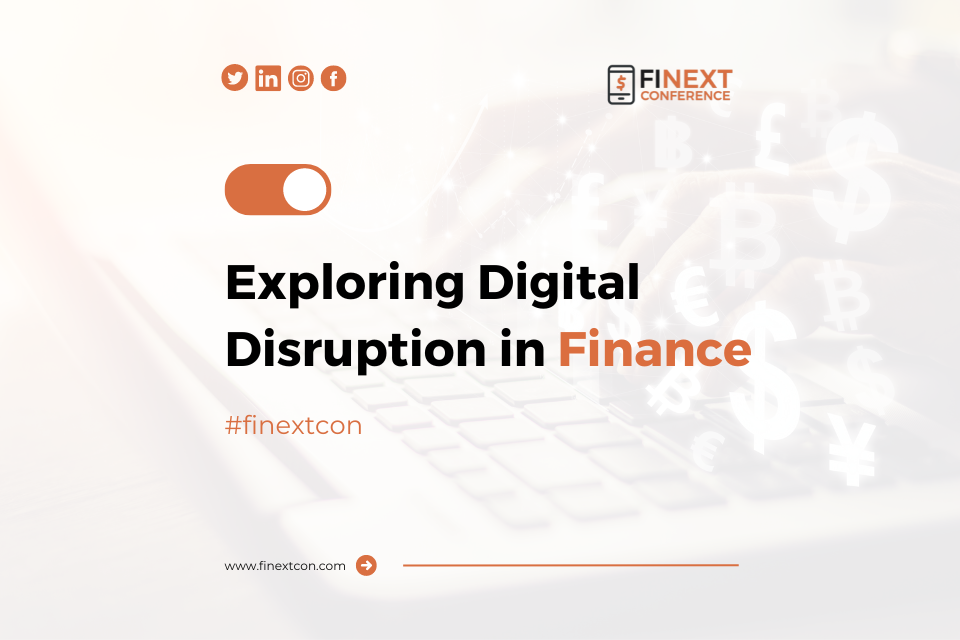The digitization of financial services has unleashed a wave of disruption, reshaping how individuals and businesses manage their finances, invest their assets, and plan for the future. We’ll explore:
Fintech Revolution: How fintech startups are challenging traditional banking and financial institutions with innovative solutions in payments, lending, wealth management, and more.
Digital Banking: The rise of digital banks and neobanks, and their role in driving financial inclusion, improving customer experience, and redefining the banking landscape.
Cryptocurrencies and Blockchain: The transformative potential of blockchain technology and cryptocurrencies in revolutionizing payments, decentralized finance (DeFi), and asset tokenization.
Leveraging Technology for Financial Innovation: Technology is not just disrupting traditional financial services; it’s also fueling innovation, enabling new business models, and unlocking untapped opportunities. We’ll delve into:
AI and Machine Learning: How artificial intelligence and machine learning algorithms are powering predictive analytics, risk management, fraud detection, and personalized financial services.
Big Data and Analytics: The role of big data analytics in generating actionable insights, enhancing decision-making processes, and driving operational efficiencies across the financial ecosystem.
Robo-Advisors and Automated Investing: The emergence of robo-advisors and algorithmic trading platforms, and their impact on democratizing access to investment advice and portfolio management.
Navigating Regulatory Challenges and Ethical Considerations
Amidst the rapid pace of technological innovation, navigating regulatory frameworks, compliance requirements, and ethical considerations becomes paramount. We’ll discuss:
Regulatory Compliance: The evolving regulatory landscape governing fintech and digital finance, and the challenges of maintaining compliance while fostering innovation.
Data Privacy and Security: The importance of safeguarding sensitive financial data, mitigating cybersecurity risks, and building trust in an increasingly digitized financial ecosystem.
Ethical AI and Responsible Innovation: Addressing concerns surrounding algorithmic bias, transparency, and accountability in the deployment of AI-driven financial services.
Digital disruption in finance is transforming the industry at an unprecedented pace. From mobile banking to blockchain technology, the landscape of financial services is evolving rapidly, driven by technological advancements and changing consumer expectations. This blog delves into the key aspects of digital disruption in finance, examining its impact on traditional banking, the rise of fintech, and the future of financial services.
The Impact on Traditional Banking
Traditional banking institutions have long dominated the financial sector, but digital disruption is challenging their hegemony. The advent of online and mobile banking has revolutionized how customers interact with their banks. No longer constrained by the need to visit physical branches, consumers can now conduct transactions, check balances, and manage their finances from their smartphones. This shift not only enhances convenience but also significantly reduces operational costs for banks.
Moreover, digital disruption is forcing traditional banks to rethink their business models. They must innovate to stay competitive, investing in new technologies and collaborating with fintech companies to offer enhanced services. For instance, many banks are now adopting artificial intelligence (AI) to improve customer service through chatbots and to offer personalized financial advice. The use of big data analytics allows banks to better understand customer behavior and tailor their products accordingly.
The Rise of Fintech
Fintech, short for financial technology, is at the heart of digital disruption in finance. These innovative startups leverage technology to offer financial services that are more efficient, transparent, and user-friendly than traditional methods. From peer-to-peer lending platforms to robo-advisors, fintech companies are addressing gaps in the market and providing alternatives to conventional banking services.
One notable area where fintech is making waves is in payments. Digital payment solutions such as PayPal, Venmo, and Apple Pay have gained widespread adoption, making transactions faster and more convenient. These platforms often offer lower fees compared to traditional payment methods, attracting both consumers and merchants. Additionally, the rise of cryptocurrencies and blockchain technology is poised to further revolutionize the payments industry by enabling secure, decentralized transactions.
The Future of Financial Services
As digital disruption continues to reshape finance, the future of financial services looks promising yet uncertain. One of the most significant trends is the integration of AI and machine learning into financial operations. AI-powered tools can enhance fraud detection, automate trading, and provide more accurate credit scoring, ultimately leading to more efficient and secure financial systems.
Another critical development is the expansion of open banking, which allows third-party developers to build applications and services around financial institutions. This trend is driving increased competition and innovation, empowering consumers with more choices and better financial products.
However, digital disruption also presents challenges. Cybersecurity remains a top concern, as the increase in digital transactions opens up new avenues for cyber-attacks. Financial institutions must invest heavily in robust security measures to protect sensitive data and maintain customer trust. Additionally, regulatory frameworks need to evolve to keep pace with technological advancements, ensuring that innovation does not come at the expense of stability and security.
Conclusion
Digital disruption in finance is reshaping the industry in profound ways, offering both opportunities and challenges. Traditional banks must innovate to remain relevant, while fintech companies continue to drive the evolution of financial services. As technology advances, the future of finance will likely be characterized by greater efficiency, transparency, and inclusivity. Embracing these changes while addressing the associated risks will be crucial for all stakeholders in the financial ecosystem. The journey of digital disruption in finance is just beginning, promising an exciting and transformative era ahead.
Read More
The Future of Payment Gateways: Paving the Way for Seamless Transactions





